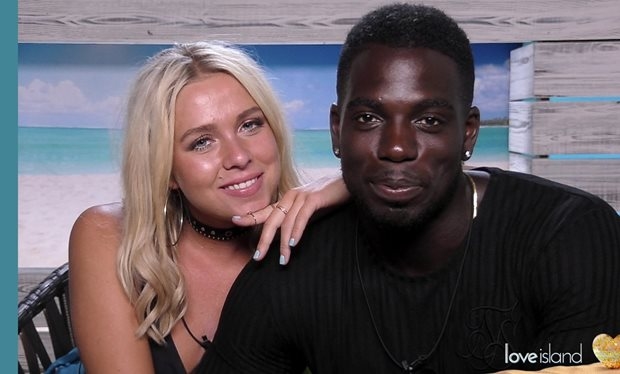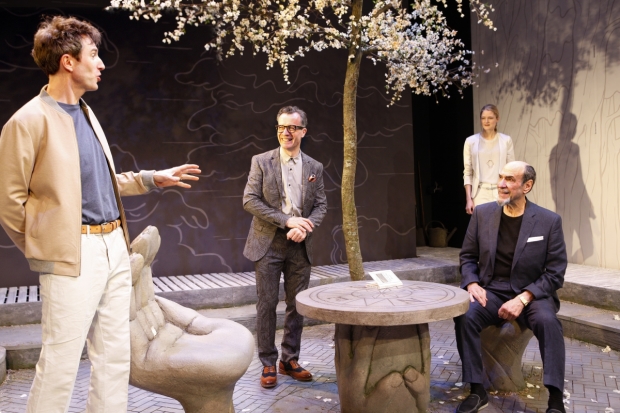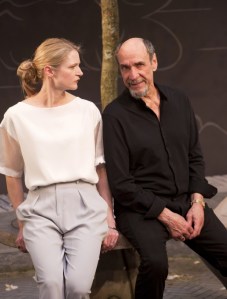What theatre could learn from Love Island
After a frustrating trip to the theatre, the hit ITV2 reality show got Sarah Crompton thinking about the lack of true to life stories told on our stages

© ITV2
I stumbled into my house in a very grumpy mood after going to the theatre on Monday night and found two teenagers on the sofa watching Love Island. So, to their intense irritation, I sat down to watch with them. And found myself seduced.
Now I'm not saying Love Island is a TV programme in the great Reithian tradition. I am vaguely shocked by its up front sexiness, and by some of the language used – though also, truth be told, fascinated by the fact that in the past few years, while I haven't been listening, young people have invented an entirely new form of English.
But I was certainly entertained by it. And it made me think.
The reason I was in such a foul mood was that I had been to see The Mentor, by the hot young German writer Daniel Kehlmann, starring the Oscar-winning actor F Murray Abraham. Many of my theatre-reviewing colleagues have liked this bonne bouche about an old writer's clash with the young playwright he is meant to be mentoring.
Sexual liaisons between young women and older men do not occur nearly as often as male authors like to imagine
But for me it sums up all my reservations about theatre: it is self-enclosed, self-referential and entirely removed from real people or their concerns. It offers a few good jokes in return for enticing people who are looking to be amused before they go out to dinner or head for the pub. It is unlikely to make anyone who has never fallen under theatre's spell feel that it is an insightful or meaningful way to spend their free time.

(© Simon Annand)
The scenes that had me spitting tacks, however, were those which implied that the playwright's young wife might actually be interested in a sexual liaison with the 77-year old writer. I know these encounters do happen outside the pages of novels, screenplays and plays, but they do not occur nearly as often as male authors like to imagine.
Which brings me back to Love Island. Here we have a group of attractive, healthy and sexually aware young people doing what young people do: eyeing up the talent, deciding who they fancy, and pursuing love (for it is love, rather than just sex that they appear to be after) with all their heart and might. If you strip away the glamorous setting and the fact that TV viewers and producers are allowed to interfere in the pursuit, then the scenes you are watching are replicated in pubs, clubs and homes across the country.
To encourage young people to think theatre is something they might enjoy, we should also encourage the kind of play that reflects their lives
And so is the heartbreak that ensues. Love Island, in its own artificial way, is an exceptionally good record of just how hard it is to grow up, to forge relationships and friendships, how perilous the path you tread can be. Even beauty is no guarantor of happiness; you can put your eggs in the wrong basket and be rejected. You can have a heart of oak and find people think you are dishonest. You can make one stupid mistake and destroy something that is potentially valuable and meaningful. Or, as this week's touching conversation between Gabby and Marcel revealed, you can feel you are ugly and alone and be consoled by kind words and goodness.
Watching it, I was struck by two things. Firstly how rare it is to see these type of relationships or these worries depicted on stage. Perhaps success comes too late for playwrights to remember their adolescent angst. Perhaps it is not regarded as the stuff of drama. Yet it is the fabric of life, the emotions we all have to deal with at one point or another, even if we don't look quite as good as these reality show contestants in bikinis and tight-fitting trunks.
Secondly, for all the definitions we might make about low and high culture, and the fact that Love Island scrapes a barrel of very low common denominators, it is no more or less edifying than witnessing the kind of wish fulfilment where men write about the way older men are irresistible to women – just because they hope it is so.
So perhaps if we really want to encourage young people to think theatre is something they might enjoy, we should also encourage the kind of play that reflects their lives and their preoccupations. That won't always be about the future of the planet. Sometimes, just sometimes, it might be about why the person we desire doesn't fancy us.













